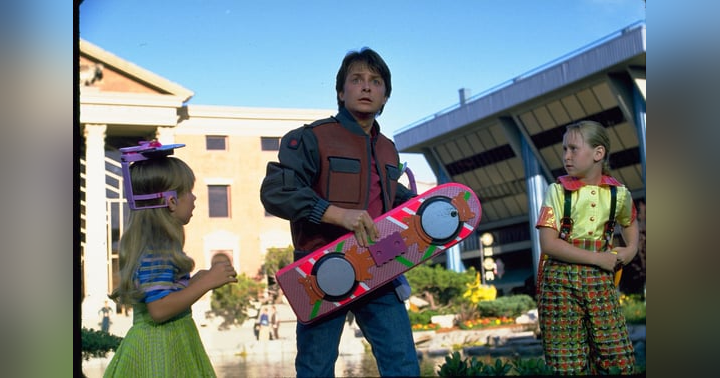Bringing the Past to Life: The Importance of Historical Drama in Cinema

Historical drama in cinema has long held a prominent place, transporting audiences to pivotal moments in the past while delivering powerful stories of heroism, tragedy, and triumph. Movies like Braveheart (1995) and Gladiator (2000) are prime examples of how this genre captures the grandeur of history while offering emotional depth and timeless themes. But why do historical dramas resonate so deeply with audiences, and what makes them such an essential part of the cinematic experience? Let’s explore the significance of this beloved genre and its enduring impact on film and culture.
History Comes Alive: The Power of Visual Storytelling
At its core, the historical drama brings history to life through the magic of visual storytelling. Textbooks can only do so much when conveying the struggles and victories of the past, but films allow us to see, hear, and feel the weight of historical events.
Take Ridley Scott’s Gladiator for example. Released in 2000, it thrust viewers into the brutal yet awe-inspiring world of Ancient Rome. Through stunning cinematography, epic battle scenes, and meticulous attention to detail, Scott created a visceral experience that made Roman history tangible. The dusty Colosseum floors, the blood-stained armour, and the roaring crowds allowed audiences to feel like witnesses to history.
Similarly, Mel Gibson’s Braveheart (1995) gave new life to the story of Scottish warrior William Wallace. While some historical liberties were taken, the film painted a vivid portrait of 13th-century Scotland—a world of oppression, rebellion, and sacrifice. Historical dramas like these bridge the gap between education and entertainment, allowing viewers to connect emotionally with the past.
Humanising the Past: Relatable Heroes and Universal Themes
One of the most compelling aspects of historical dramas is their ability to humanise historical figures. The genre takes distant or mythical heroes and turns them into relatable, flesh-and-blood characters. These figures face personal struggles, moral dilemmas, and emotional battles that transcend time and connect with modern audiences.
In Gladiator, Russell Crowe’s Maximus is more than a Roman general; he’s a grieving father, a betrayed leader, and a man fueled by justice and honour. His quest for vengeance against the corrupt Emperor Commodus (Joaquin Phoenix) resonates because it’s built on universal themes—loss, resilience, and the fight for freedom.
Likewise, Braveheart’s William Wallace isn’t just a legendary warrior; he’s a man seeking justice for his people and revenge for personal loss. His rallying cry of “Freedom!” has echoed through generations, not just as a cinematic moment but as a timeless reminder of humanity’s struggle for liberty and dignity.
Historical dramas distil complex historical events into deeply personal stories, reminding us that the people who shaped history were not so different from us. Their desires, fears, and triumphs feel universal, making their stories timeless and relevant.
Cultural and Educational Value
Historical dramas also play a vital role in introducing audiences to cultures, events, and figures they may otherwise never explore. While films like Braveheart and Gladiator often take creative liberties, they spark curiosity about the past and inspire further exploration.
For instance, Gladiator reignited public interest in Ancient Rome, leading many viewers to delve deeper into its history, art, and politics. Similarly, Braveheart elevated awareness of Scotland’s history and its struggles for independence. Even when historical accuracy isn’t perfect, these films act as gateways to learning, encouraging viewers to separate fact from fiction and engage with history meaningfully.
The educational power of historical dramas lies not just in the events they depict but in their ability to present complex themes—war, justice, power, and morality—in ways that are accessible and compelling. Films like Schindler’s List (1993) and 12 Years a Slave (2013) go further, offering unflinching portrayals of humanity’s darkest moments while preserving the stories of those who endured them. These films act as reminders of historical truths that must not be forgotten.
Visual Grandeur and Cinematic Innovation
Historical dramas have long pushed the boundaries of filmmaking, using cutting-edge technology, set design, and special effects to recreate epic historical moments. These films often rely on grand set pieces, large-scale battles, and detailed period costumes to immerse audiences in their worlds.
Ridley Scott’s Gladiator stands as a shining example of this innovation. The film combined practical effects with then-groundbreaking CGI to recreate the glory of the Roman Colosseum. Sweeping shots of gladiatorial combat and roaring crowds gave the film its epic scale, while the intimate camerawork focused on Maximus’ personal journey.
Similarly, Braveheart utilised breathtaking cinematography to capture the rugged beauty of the Scottish Highlands. Its brutal battle sequences were groundbreaking at the time, blending raw physicality with sweeping visuals that emphasised the scale and chaos of war.
Historical dramas are often at the forefront of cinematic excellence, showcasing the art and craft of filmmaking. From production design to costume work to soundtracks that elevate every scene, the genre delivers some of cinema’s most awe-inspiring and memorable moments.
Shaping Cultural Identity and Legacy
Beyond entertainment, historical dramas contribute to cultural identity by celebrating the stories and struggles of specific nations, communities, or individuals. Films like Braveheart and Gladiator tap into collective memories and national pride, helping to shape how societies remember their past.
For Scotland, Braveheart became more than just a film; it symbolised resilience and freedom. The story of William Wallace galvanised audiences around themes of nationalism, rebellion, and sacrifice, connecting deeply with Scottish identity.
Similarly, Gladiator reintroduced audiences to Roman culture, reminding us of its lasting impact on governance, architecture, and society. By dramatising the struggles of individuals within these historical contexts, films like these preserve the stories that define humanity’s shared heritage.
The Emotional Connection: Why We Keep Watching
At the heart of every great historical drama is its ability to evoke powerful emotions. Whether it’s through tales of sacrifice, the grandeur of an ancient empire, or the quiet heroism of individuals, these films remind us of what it means to be human.
Historical dramas tap into universal experiences—love, loss, honour, and survival—that transcend their historical settings. They remind us that, despite the passage of time, the human condition remains constant. The struggles of Maximus, Wallace, and countless other cinematic heroes resonate because they reflect our own hopes, dreams, and fears.
Final Thoughts
The importance of the historical drama in cinema cannot be overstated. These films breathe life into the past, educate and inspire audiences, and offer emotional stories that stand the test of time. From the epic battles of Braveheart to the gripping spectacle of Gladiator, historical dramas combine cinematic grandeur with deeply personal storytelling, reminding us of the triumphs and tragedies that have shaped our world.
In a time when escapism often dominates the big screen, historical dramas continue to serve as powerful reminders of where we’ve come from and what we’ve endured. They are not just movies; they are windows into history, offering stories that inspire us to reflect, remember, and, above all, feel.
So, the next time you sit down to watch a sweeping historical epic, take a moment to appreciate the journey you’re about to embark on—a journey that bridges the gap between past and present, and reminds us all of the power of storytelling.















